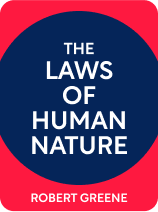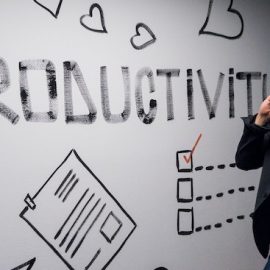

This article is an excerpt from the Shortform book guide to "The Laws Of Human Nature" by Robert Greene. Shortform has the world's best summaries and analyses of books you should be reading.
Like this article? Sign up for a free trial here .
How do you take charge of your life? Why is it important to be able to be your own authority when other forms of leadership fail you?
To take charge of your life, you’ll have to learn how to be your own leader. You can identify your purpose and avoid issues that lead to unhappiness.
Keep reading to find out how to take charge of your life.
Take Charge of Your Life: Become Your Own Authority
If you can’t find a leader you want to follow, you can also meet or partly meet your need for guidance by developing personal authority to take charge of your life. This involves finding your purpose and using it, instead of or in an addition to an outside authority figure, to guide your actions. (Note that purposes aren’t the same as ego.)
In general, our purpose is to find our own niche in the ecosystem of humanity so that we contribute to the world’s diversity. The world we live in today was created by others fulfilling their purposes in the past. (For example, the physics equations we learn in school were developed by ancient astronomers.) All of us have the responsibility to contribute something to society.
Our more specific purposes are determined by our unique talents and interests. All purposes are fine as long as they’re personal and internal. You can learn them in order to take charge of your life.
- (Shortform example: If you’re good at music, your specific purpose might be to create compositions that people will enjoy, which will fill your general purpose of contributing to society.)
Once we find our purpose, we’ll know how to behave when confronted with decisions and opportunities and reap the following benefits:
- Our choices are unified, so they’re more powerful.
- We’re using our inherent talents and character, so we feel energetic and are more effective. (Purpose might initially seem like it will lead to a life of constant work and tedious practice, but it’s actually lack of purpose that turns our lives gray because feeling like we’ve wasted our time and lives is unpleasant.)
- We can focus and overcome adversity.
Additionally, when following our purposes, some of our negative, conflicting emotions will be changed into something productive or disappear entirely:
Boredom. If we aren’t doing something that matches our interest and engages us, we become chronically bored. We might try to distract ourselves with vacations or new hobbies, but nothing holds our interest for long due to the law of diminishing returns. Once we have a purpose and when you take charge of your life, however, practicing skills is motivating because we know they’ll lead us somewhere concrete.
- For example, if your purpose is to play the piano, you’ll have to practice a lot. This practice might get boring for someone who wasn’t actually interested in piano, but because you like it, it’s fun and easy to focus. Even in low moments, you can carry on because you know practicing will lead you somewhere in particular; it’s not aimless like practicing something you’ll never use.
Insecurity. If we don’t feel like we’re working towards anything, we don’t have goals and can’t accomplish anything of value. We become sensitive to criticism, which makes it even harder to learn and improve. Once we have purpose, however, we know that we’re realizing our potential and have accomplishments to demonstrate we’re on the right path. Our doubts are about our work, not ourselves, and we’re able to tell the difference between helpful and unhelpful criticism.
Anxiety and stress. Lacking purpose, we were never forced to achieve a goal and spent most of our time avoiding pain. When we encounter unavoidable, stressful situations we don’t know how to cope with stress and suffer. However, once we have purpose, we regularly experience anxiety and stress in small doses as we achieve smaller goals that are related to our larger purpose. We learn to manage pressure and can channel it into motivation.
Depression. Without purpose, we don’t have any sense that our life has meaning, and we feel empty. However, once we have purpose, we’re happier because we know we’re living up to our potential and contributing to the good of humanity. We’ll still have low moments, but armed with purpose, these moments can be used for reflection and learning to take charge of your life.

———End of Preview———
Like what you just read? Read the rest of the world's best book summary and analysis of Robert Greene's "The Laws Of Human Nature" at Shortform .
Here's what you'll find in our full The Laws Of Human Nature summary :
- Why it's in your nature to self-sabotage
- How you behave differently when you're in a group
- Why you're wired to want the wrong things in life






